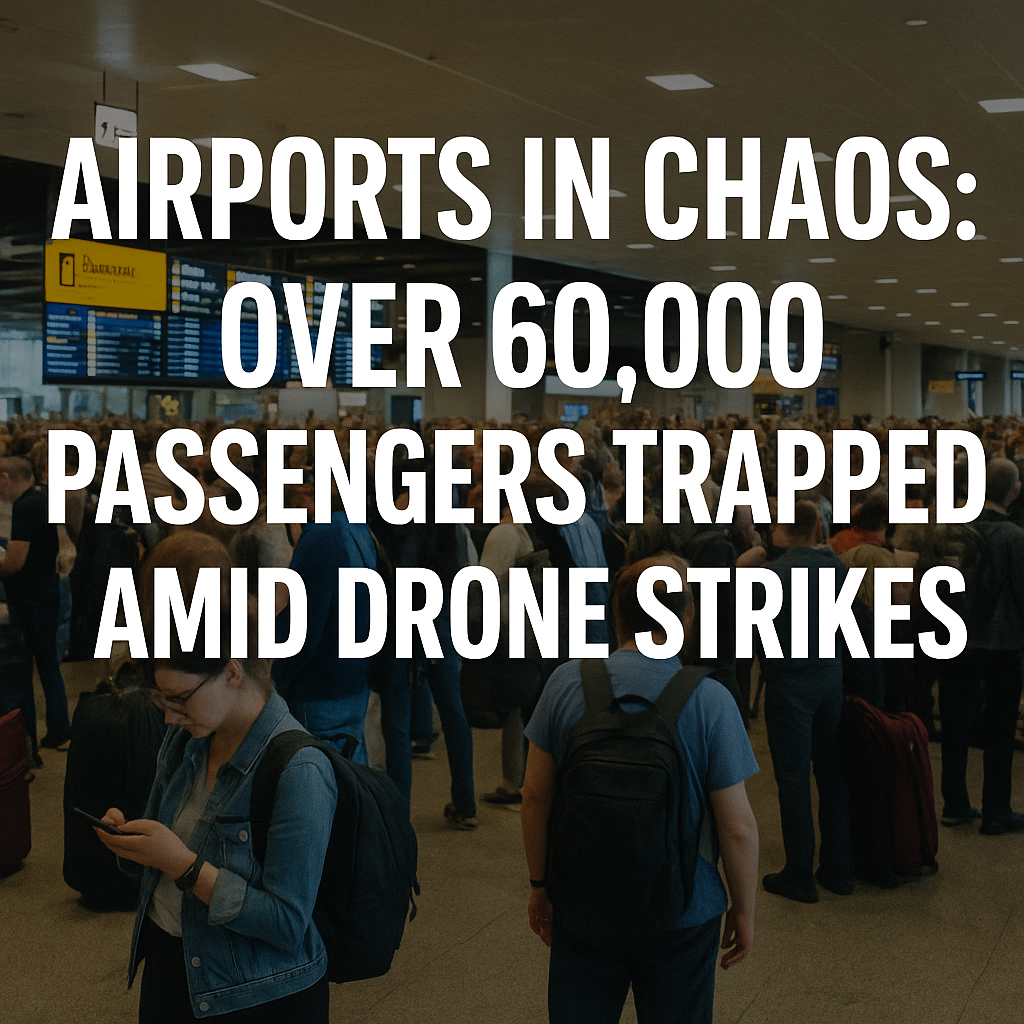On the night of May 6–7, several regions in Russia faced sudden drone attacks. These drones reportedly targeted defense-related facilities in multiple Russian oblasts. The attacks caused major fires and led to serious safety concerns. In response, air traffic in many areas was quickly shut down.
Drone Attacks Spark Sudden Travel Chaos
Due to the threat, major Russian airports had to take emergency action. Several incoming flights were diverted, many others were delayed, and dozens were canceled altogether. This left over 60,000 passengers stuck in airports across the country. The effects of the closure were felt not only in Moscow but in many other cities as well.
Russia’s air defense systems said they destroyed at least seven drones close to Moscow. But even with the response from the defense forces, the threat caused airport authorities to act fast. Sheremetyevo Airport in Moscow, one of the busiest in the country, was temporarily closed for safety.
The result was instant disruption. Flights were grounded. Passengers in terminals were bewildered and irritated. Long lines formed as people tried to rebook their flights or find alternative travel options. Many passengers had no place to go and had to wait inside the airport for hours, some even overnight.
Flights Cancelled, Delayed, or Diverted Across the Country
The impact of the drone attacks was not limited to just one airport. There were significant difficulties at Moscow’s three main airports: Vnukovo, Sheremetyevo, and Domodedovo.
Putin Rejects Use of Nuclear Weapons in Ukraine, As Drone Strikes Hit Kyiv Amid Ceasefire Talks
Approximately fifty planes were canceled at Vnukovo Airport. Over forty-five others experienced delays of more than an hour. Pulkovo, Ufa, Saratov, Mineralnye Vody, Perm, and other places had to receive some of the planes that were scheduled to land at Vnukovo. Forty-three aircraft were diverted from Vnukovo in all.
Sheremetyevo Airport was even more affected. At least 50 flights experienced delays, while about 100 were totally canceled. People at the airport had to wait for hours without knowing when their flights would take off. Some were already on planes when they were asked to deboard.
Domodedovo Airport saw fewer cancellations but still faced trouble. It cancelled 20 departures and had delays for over 70 arriving flights. Passengers arriving in Moscow had to sit in planes on the tarmac for long periods, or they were sent to other airports.
The chaos did not end with Moscow. Many cities far from the capital were also affected. There were delays or suspensions at airports in Sochi, Kazan, Kirov, Nizhnekamsk, Kaluga, Volgograd, Samara, Ivanovo, Yaroslavl, and Tambov, among other places. This wide area of disruption caused a ripple effect, or what experts called a “domino effect,” where one delay led to another across the air travel network.
ATOR, the Association of Tour Operators of Russia, warned that the first set of delays would cause more trouble throughout the day. They asked travelers to keep checking their flight status and not head to the airport without confirmation.
Russia Launches Record Drone Strike on Ukraine with 183 Drones and Two Missiles in Overnight Terror
Airlines Respond With Cancellations and Flight Mergers
In the middle of this large-scale disruption, many airlines tried to manage the situation by cancelling or merging flights. This means that some passengers who had booked tickets for separate flights were moved to a single flight. This helped airlines save on fuel and crew time, but it also meant longer wait times and more crowding on available flights.
Among the affected airlines were Aeroflot, Rossiya, Pobeda, S7, Ural Airlines, Nordwind, NordStar, and Azur Air. They had to make quick decisions on which flights to operate and which to cancel.
Some airports didn’t have enough staff to handle the large number of diverted flights. Buses had to be arranged to transport passengers to nearby cities or hotels. Luggage was also delayed or misplaced in the confusion. People reported having no information on when they would get their bags back.
The trouble didn’t end at the airport terminals. At least 30 cities in central Russia faced internet disruptions during or after the drone attacks. This made communication difficult. Some passengers couldn’t reach their families or check their flight details online. Others had trouble booking hotel rooms or rebooking their flights due to poor internet service.
The events of May 6–7 created one of the most serious air travel disruptions in Russia in recent times. What started as a security incident turned into a major nationwide issue affecting thousands of travelers, airport staff, and airline operations.

